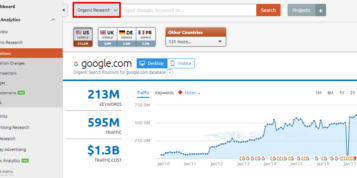Penguin 2.0 arrived today and a large part of the digital marketing and SEO community has been sent into panic checking their search engine visibility.
So far the SERPS are a mixed bag with risers and fallers. In typical Google fashion some SERPs are better and some are worse or with little change at all.
The good news for SEO PR
As most Fourth Source readers know, SEO PR generates traffic via organic search and referral from third party sites. By creating great offsite content in the media and on blogs we can indirectly drive traffic to a site by building a domain’s authority through the acquisition of links from offsite content.
The good news for PRs is that in a post-Penguin 2.0 world, traditional SEO link building is getting more difficult and risky, while the influence of natural earned links are increasing all the time.
The fact of the matter is that more and more SEO companies are deploying PR tactics, and being pretty good at doing so, like this great example for Co-operative Funeral Care.
Every SEO conference this year has had a session on PR or media relations and overall it seems that the SEO PR niche is expanding month on month.
The bad news for SEO PR?
OK, here is the bad news. For every great campaign, like the Co-operative Funeral Care, there are a plethora of poorly thought through infographics and ill-conceived blogger outreach campaigns. There are also a number of blogs that are really nothing more than glorified article directories, albeit more difficult to spot than the old fashioned article submission sites. They are crying out to get hit by a Google update.
The over reliance on guest posting by some SEOs is even leading some leading titles to think about stopping guest posts all together. That spells bad news for the PR industry.
Keep calm and carry on?
The classic mantra of creating quality content that people want to link to is a tired cliché but as Google gets better at sorting the wheat from the chaff it is becoming increasingly relevant. Overtime PR will become more and more important as an SEO tool.
On the other hand, don’t let Google updates spread rumour and panic. Just deal with the facts, rather than reacting to very internet rumour. Some low quality websites will be hit. High quality sites with robust content and editorial policies, shouldn’t have anything to worry about.




